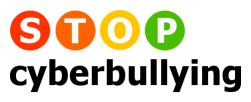 |
what is it? :: how it works :: why cyberbully? :: prevention :: take action :: what's the law?
![]() In this section:
In this section:
Common sense to Cybersense :: Is my child at risk? :: Parents biggest concerns :: What's the parent's role? :: Google yourself :: What methods work with the different kinds of cyberbullies? :: Telling the difference :: Instant Messaging 101 :: A quick guide to responding to a cyberbullying incident :: Community programs :: Wired Kids Summits :: Wired Kids Summits: Cyberbullying - Youth-Empowered Solutions :: Internet Superheroes :: Teenangels
The Internet Super Heroes’ Philosophy
Spider-man 2’s Aunt May said that “there is a hero in all of us [that] gives us strength [and] makes us noble.” Super Heroes have the responsibility to use their powers wisely, not solely for their own benefit. They strive to improve the world, help others and right wrongs. Parry Aftab believes that there is a hero in all our children, as well. And tapping that power to do good and respect others is essential to guiding our children in using digital technologies, wireless communications and the Internet responsibly and safely.
Most Internet safety programs focus on the basic safety tips. (As Parry herself did for many years.) They are designed to teach our children and their parents about online sexual predators, how to avoid pornography and other inappropriate content and not to share personal information with strangers online. While important lessons, Parry believes that our children need to learn more. Much more. They need to be taught to respect others online, how to tell the difference between misinformation and credible sources, how to find what they are searching for and how to protect their privacy. They need to be taught not to misuse the technology and to maintain a healthy balance between their online and offline activities. They need to be taught how to function safely, privately and responsibly in a world where Internet and wireless technologies exist at every level. They need to be taught how to be good cyber-citizens.
Most of our children have never known life without the Internet. Since its launch in 1993, the Web has been a significant force in our and our children’s daily lives. Now all schools in the United States have some kind of Internet connection. And many classrooms are connected as well. Until recently it was an advantage for our children to be online. Now they are at a distinct disadvantage if they are not.
One of Parry Aftab’s favorite statements is “The greatest single risk our children face in connection with the Internet is being denied access.” She insists that she has a solution for all other risks, but none for children who are prevented from using this important educational and communication tool.
Since Parry’s first book, The Parents’Guide to the Internet, was published in 1997, she has devoted her life to helping families stay safe online. But following the publication of her second book, The Parent’s Guide to Protecting Your Children in Cyberspace, worldwide in 2000, she has shifted her primary focus to helping children and teens use the “filter between their ears.” She understood that although educating parents was essential to keeping children safe online, educating the children themselves had to be prioritized. Parry felt we needed to help the children directly.
To help her, she recruited her WiredSafety.org volunteers. She also recruited caring and talented teens and created the Teenangels (Teenangels.org). Teenangels volunteers are between the ages of 13 and 18 and are trained in a comprehensive and intense program on all aspects of the 4Ps (privacy, predators, pornography and piracy). The FBI, FTC and other leading governmental agencies in the United States participate in their training. (Equivalent groups help train Teenangels outside of the United States.) The program was so well-received that a younger group was formed, called the Tweenangels, to include preteens between the ages of 10 and 13.
The Teenangels have helped identify new issues as they arise over the years. These have included spyware and pop-ups, interactive gaming, instant messaging away-messages and new types of cyber-bullying and online harassment. They also included new ways online predators are trying to lure children into offline meetings and sexually exploit our youth. This special insight has been invaluable to the development of new programs and messages.
While some Internet safety rules still talked about putting the computer in a central location, Parry realized that unless we can also keep their interactive computer games, cell phones and text messaging devices in a central location, our children had to be educated to practice defensive surfing. Like its offline driving equivalent, defensive surfing teaches our children to avoid dangerous cyber-situations, when to come to us, as their parents, and how to report cybercrimes and abuse.
Parry quickly learned that by educating these special teens, she was also empowering them to help others. Additionally, other young Internet users responded better to messages delivered by their peers.
![]()







contact us :: volunteer :: media
privacy policy :: terms of use